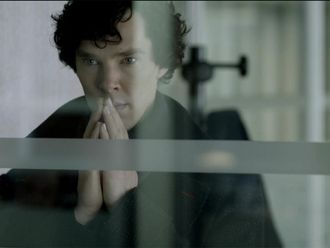
How often have you wondered whether an apology is real or fake? It happens all the time, when you turn on the news: politicians, business leaders and celebrities’ apologies all have us raising an eyebrow or shaking our heads.
Click start to play today’s Spell It, where we avoid the ‘mind’ games and get down to the science of differentiating between a genuine and fake apology.
Even in our personal lives, we may have received apologies that just felt fake. Unfortunately, it’s a common occurrence. According to an October 2023 report in the US-based psychology news website Psychology Today, here are some ways to spot a fake apology:
1. They place the blame elsewhere
Often beginning with the classic “I’m sorry that you are upset”, these apologies might as well be saying, “You are too sensitive”. Apologies like these usually shift the blame to someone or something else, and don’t take personal responsibility. There is no admission of error or discourtesy.
2. They appear forced
It’s clear that an apology is forced when someone says “Fine, I apologise,” or “He/she told me that I should apologise to you”. This basically implies that if the other person hadn’t urged them to apologise, they wouldn’t have. Such apologies usually come forth after the person gets caught in their misdeed or suffers some kind of backlash.
3. They are vague
For a truly genuine apology, the person should clearly be aware of what he/she did wrong. So, if someone says “I am sorry if I did anything wrong,” they may not really be getting to the heart of the matter, and just apologising to placate you in the moment.
4. They have conditions attached
If someone says “I will apologise if…”, then you know that person hasn’t technically apologised yet, and they’re likely not going to. If there’s a condition attached, then it’s likely the apology is not coming from a genuine place of remorse.
5. They don’t use apologetic language
When someone says, “You know I would never hurt you,” or “I guess I owe you an apology”, you’re still left wondering whether you received an apology or not. If there’s guesswork involved, it’s most likely not a real apology. Genuine apologies clearly use phrases like “I’m sorry” or “I apologise” so that it’s crystal clear.
Apart from these insights, body language is a clear indicator of a real apology – gestures, facial expressions and energy have full alignment with the language used.
What do you think of these tips to identify a fake apology? Play today’s Spell It and tell us at games@gulfnews.com.









